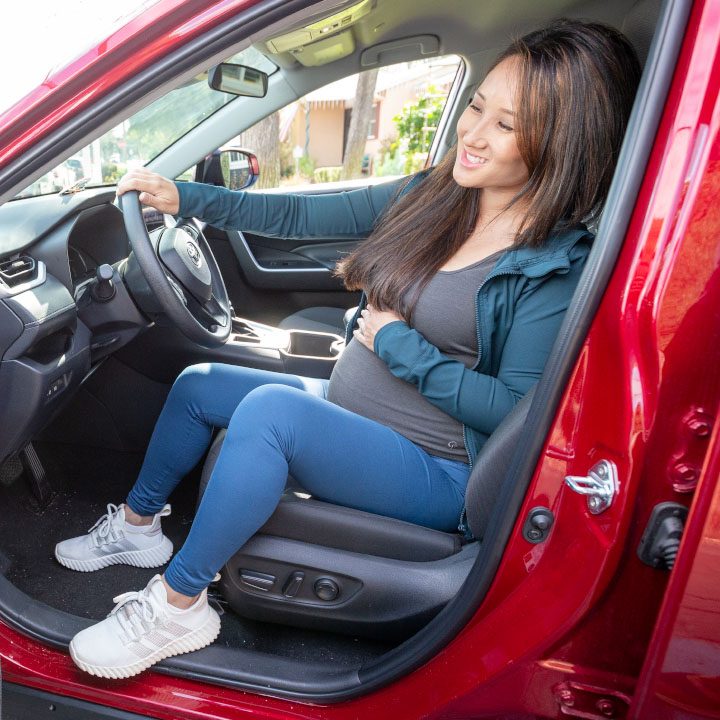- Insurance Guide
- Property Insurance
- Car Insurance Tracking Devices
How do those car insurance tracking devices work?

What is a car insurance tracking device?
Insurance tracking devices are small devices that gather information captured by your car’s computer and provide it to the insurance company. The devices won’t change the way your car operates (they won’t limit your top speed or when and how you drive) and won’t cause any harm to it.
Why do insurance tracking devices exist?
Tracking devices allow insurance companies to accurately identify their safest drivers and then reward them with discounts. The discounts are also an excellent way for insurers to attract new customers.
The devices may also help control the price of auto insurance for people who don’t have them installed. How? By helping insurance companies combat phony insurance claims. Every year, fraudulent claims are made to insurance companies. And part of the cost for those phony claims gets passed along to honest customers. Insurance tracking devices help stop fraud and help keep insurance prices from rising.
So, how might insurance trackers identify fake claims? Let’s look at an example. A driver might claim that he was driving responsibly when an animal darted in his path, causing him to brake suddenly, slide off the road, and wreck his car. However, the data collected by the insurance tracker might tell a different story. The tracker may help the company determine that he crashed due to reckless driving or even in a deliberate attempt to collect the insurance money.
How do car insurance trackers work?
Insurance trackers plug into your car using a port typically found below your steering wheel. This is the same connection that a mechanic uses to read your car’s computer data and discover any problems with your vehicle. The insurance company’s device also reads your computer’s data. But instead of looking for issues with the car’s operation, it scans for information connected to what the insurer needs to know about your driving habits.
Do insurance companies track your speed?
The answer depends on the insurance company and its policies regarding its tracking devices. However, the capability is there. The tracking device can, in theory, read any information that your car’s computer processes — and that includes speed. If you’re not sure, ask the company. They may explain that tracking your speed gives them a better understanding of your driving habits. After all, drivers who obey speed limits tend to be safer drivers.
What else do insurance companies track?
Speed isn’t the only thing insurance trackers can monitor. Here are some other pieces of data they can track:
- Your car’s location
- The date and time of your trip
- How quickly you accelerate
- How aggressively you apply your brakes
- How fast you turn corners
- If you make and receive phone calls (using the car’s technology) while driving
- Your mileage
- How frequently you drive
Do tracking devices reduce your insurance costs?
An insurance company may give you an immediate discount on your insurance simply for agreeing to use their tracking device. Generally, the company will provide a way for you to keep track of your potential savings. For example, you might be able to check the company’s app to instantly see if your driving habits are saving you money. The information may constantly update, giving you an up-to-the-minute picture of your insurance costs and savings.
Should you let your insurance company monitor your driving?
Because most people are unfamiliar with insurance trackers, the devices can often seem strange and even frightening. Some people immediately get nervous at the thought of their driving habits being monitored.
However, other drivers have embraced insurance trackers as a fair and legitimate means to save on their insurance. When insurers see that your driving habits present a low accident risk, they’re more likely to give you better rates. And seeing your insurance rate go down could inspire you to become an even safer driver.
Are there risks of using car insurance tracking devices?
In this age of hackers, some people fear that information about their driving habits will be stolen and used against them. But insurance companies routinely encrypt the data they collect from your car so that it’s useless to anyone who might intercept it. The companies also typically agree not to share your data with anyone except law enforcement agencies when legally required to do so. But if you’re concerned about security, ask the insurance company.
It’s important that you understand what a particular company’s insurance tracker will monitor before you agree to its installation. You also want to be clear about how this information could affect you. For example, if you primarily use your vehicle to drive a short distance to work, you might expect an insurance discount. But what if you work at night? Will you receive a penalty for driving the car during late-night hours? What if you have to drive through a high-crime area during your commute? Will this also affect your insurance rate?
Do your research and ask lots of questions. Insurance trackers have the potential to save drivers money, but only you can determine if they’re right for you.



